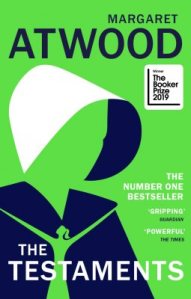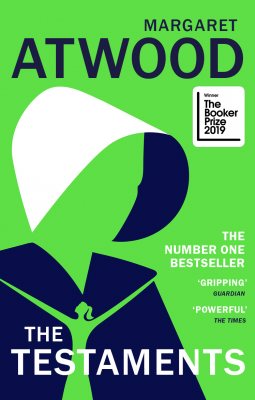May 23, 2021 · 7:01 p.m.
I read it first The Handmaid’s Tale by Margaret Atwood a long-awaited sequel about 10 years ago and recently re-read Wills. Atwood’s dystopian classic, first published in 1985, depicts the Republic of Gilead, a totalitarian and patriarchal state in the 21st century. Offred tells the story of a maid who is forced to have children for Commander Waterford and his wife Serena Joy.
As a re-reading, ‘The Handmaid’s Tale’ was fresher than it would have been in my head thanks to a TV series that is a faithful adaptation of the novel recently. I especially admire Atwood’s skill in making a fairly simple construction of the world in a fairly simple prose. Although there is little description of the surroundings of Offred or at first no great explanation of the origins of Gilead, Atwood paints a vivid and moving portrayal of this dystopian world, gradually building towards a dramatic conclusion.
 ‘The Testaments’ was the 2019 Booker Award winner along with Bernardine Evaristo’s ‘Girl, Woman, Other’. While the final seasons of the TV adaptation of ‘The Handmaid’s Tale’ follow the story of Offred, the sequel to the book sensibly avoids making comparisons with the TV performance, skipping about 15 years from the events described in the first book and introducing various new characters. The only significant character who returns in ‘The Testaments’ is Aunt Lydia, who trains women to be maids. One of the three narrators is Agnes, along with a young woman who lives in Gilead and Daisy, who now lives in Canada and learns that she was born in Gilead. Aunt Lydia’s point of view is the most interesting of the three, as it gives much more complexity to what we learned about her in the first book. As in the last few seasons of the TV series, the horrors suffered by women no longer have the same shock factor, but “The Testaments” broadens Gilead’s understanding and is as juicy and quick as “The Handmaid’s Tale.”
‘The Testaments’ was the 2019 Booker Award winner along with Bernardine Evaristo’s ‘Girl, Woman, Other’. While the final seasons of the TV adaptation of ‘The Handmaid’s Tale’ follow the story of Offred, the sequel to the book sensibly avoids making comparisons with the TV performance, skipping about 15 years from the events described in the first book and introducing various new characters. The only significant character who returns in ‘The Testaments’ is Aunt Lydia, who trains women to be maids. One of the three narrators is Agnes, along with a young woman who lives in Gilead and Daisy, who now lives in Canada and learns that she was born in Gilead. Aunt Lydia’s point of view is the most interesting of the three, as it gives much more complexity to what we learned about her in the first book. As in the last few seasons of the TV series, the horrors suffered by women no longer have the same shock factor, but “The Testaments” broadens Gilead’s understanding and is as juicy and quick as “The Handmaid’s Tale.”
The most effective dystopian fiction mirrors the real events up close, and the terrifying scenarios in both books set a precedent in modern history. Atwood’s research for “The Handmaid’s Tale” included Ceausescu’s reduction in contraceptives in Romania, and “The Testaments” seems to be partly inspired by the refugee situation and the #MeToo era. Like George Orwell’s Nineteen Eighty-Four, both books are XXI. they end with a metafictional transcript of an academic symposium of studies in Gilead at the turn of the century. The “Wills” section is especially important because it raises some growing doubts about some of the revelations in the book, reminding the reader appropriately that the new characters ’possible links to Offred are never definitively confirmed, and some“ facts ”. ”May not be all they seem.
Filed under Books
